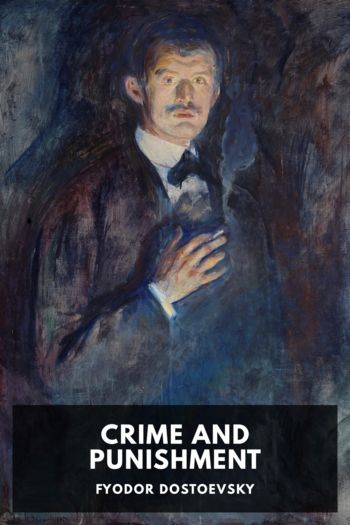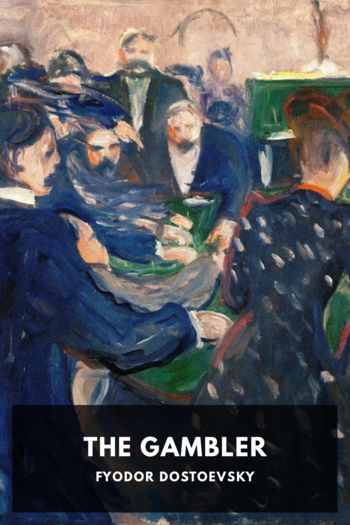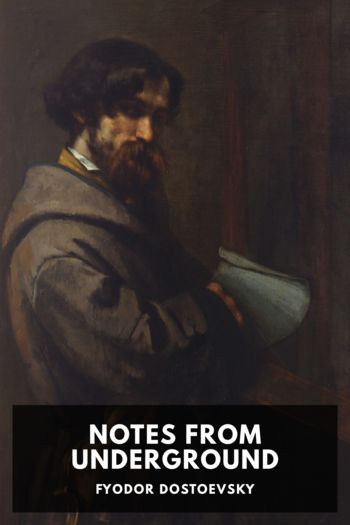mournful and anxious; he was distinctly aware of having come out with a purpose, of having to do something in a hurry, but what it was he had forgotten. Suddenly he stood still and saw a man standing on the other side of the street, beckoning to him. He crossed over to him, but at once the man turned and walked away with his head hanging, as though he had made no sign to him. “Stay, did he really beckon?” Raskolnikov wondered, but he tried to overtake him. When he was within ten paces he recognised him and was frightened; it was the same man with stooping shoulders in the long coat. Raskolnikov followed him at a distance; his heart was beating; they went down a turning; the man still did not look round. “Does he know I am following him?” thought Raskolnikov. The man went into the gateway of a big house. Raskolnikov hastened to the gate and looked in to see whether he would look round and sign to him. In the courtyard the man did turn round and again seemed to beckon him. Raskolnikov at once followed him into the yard, but the man was gone. He must have gone up the first staircase. Raskolnikov rushed after him. He heard slow measured steps two flights above. The staircase seemed strangely familiar. He reached the window on the first floor; the moon shone through the panes with a melancholy and mysterious light; then he reached the second floor. Bah! this is the flat where the painters were at work … but how was it he did not recognise it at once? The steps of the man above had died away. “So he must have stopped or hidden somewhere.” He reached the third storey, should he go on? There was a stillness that was dreadful. … But he went on. The sound of his own footsteps scared and frightened him. How dark it was! The man must be hiding in some corner here. Ah! the flat was standing wide open, he hesitated and went in. It was very dark and empty in the passage, as though everything had been removed; he crept on tiptoe into the parlour which was flooded with moonlight. Everything there was as before, the chairs, the looking-glass, the yellow sofa and the pictures in the frames. A huge, round, copper-red moon looked in at the windows. “It’s the moon that makes it so still, weaving some mystery,” thought Raskolnikov. He stood and waited, waited a long while, and the more silent the moonlight, the more violently his heart beat, till it was painful. And still the same hush. Suddenly he heard a momentary sharp crack like the snapping of a splinter and all was still again. A fly flew up suddenly and struck the window pane with a plaintive buzz. At that moment he noticed in the corner between the window and the little cupboard something like a cloak hanging on the wall. “Why is that cloak here?” he thought, “it wasn’t there before. …” He went up to it quietly and felt that there was someone hiding behind it. He cautiously moved the cloak and saw, sitting on a chair in the corner, the old woman bent double so that he couldn’t see her face; but it was she. He stood over her. “She is afraid,” he thought. He stealthily took the axe from the noose and struck her one blow, then another on the skull. But strange to say she did not stir, as though she were made of wood. He was frightened, bent down nearer and tried to look at her; but she, too, bent her head lower. He bent right down to the ground and peeped up into her face from below, he peeped and turned cold with horror: the old woman was sitting and laughing, shaking with noiseless laughter, doing her utmost that he should not hear it. Suddenly he fancied that the door from the bedroom was opened a little and that there was laughter and whispering within. He was overcome with frenzy and he began hitting the old woman on the head with all his force, but at every blow of the axe the laughter and whispering from the bedroom grew louder and the old woman was simply shaking with mirth. He was rushing away, but the passage was full of people, the doors of the flats stood open and on the landing, on the stairs and everywhere below there were people, rows of heads, all looking, but huddled together in silence and expectation. Something gripped his heart, his legs were rooted to the spot, they would not move. … He tried to scream and woke up.
He drew a deep breath—but his dream seemed strangely to persist: his door was flung open and a man whom he had never seen stood in the doorway watching him intently.
Raskolnikov had hardly opened his eyes and he instantly closed them again. He lay on his back without stirring.
“Is it still a dream?” he wondered and again raised his eyelids hardly perceptibly; the stranger was standing in the same place, still watching him.
He stepped cautiously into the room, carefully closing the door after him, went up to the table, paused a moment, still keeping his eyes on Raskolnikov, and noiselessly seated himself on the chair by the sofa; he put his hat on the floor beside him and leaned his hands on his cane and his chin on his hands. It was evident that he was prepared to wait indefinitely. As far as Raskolnikov could make out from his stolen glances, he was a man no longer young, stout, with a full, fair, almost whitish beard.
Ten minutes passed. It was still light, but beginning to get dusk. There was complete stillness in the room. Not a sound came from the stairs. Only a big fly buzzed and fluttered against the window pane. It was unbearable at last. Raskolnikov suddenly got up and sat on the sofa.
“Come,






Comments (0)